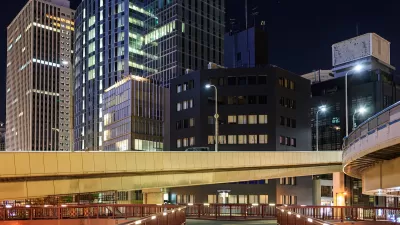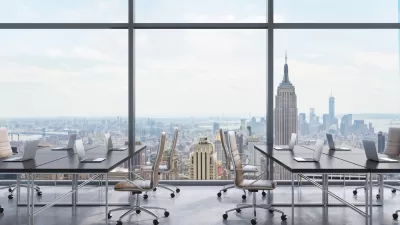The number of office-to-residential adaptive reuse projects in the works for 2024 is four times as high as in 2021.

The office-to-residential conversion boom shows no signs of slowing, with a record number of conversion projects in the works for 2024, according to an article by Quinn Purcell in Building Design & Construction.
“The latest RentCafe annual Adaptive Reuse report shows that there are 55,300 units in the pipeline as of 2024—four times as much compared to 2021,” Purcell adds. This amounts to 38 percent of residential adaptive reuse projects around the country. Hotel-to-residential conversions make up 24 percent of projects, with factories and other types of buildings filling out the rest.
Washington, D.C. leads the nation with 5,820 units slated for conversion in 2024, followed by New York City with 5,215 and Dallas with 3,163. The average age of buildings selected for conversion is 72 years old, signaling a demand for newer buildings that take less capital to modernize.
In the wake of pandemic-induced migration away from physical offices, office-to-residential conversion has become an opportunity to create more housing and revitalize neighborhoods by bringing in different uses. Cities, states, and the federal government are now establishing programs to support adaptive reuse and remove barriers to conversion, which include regulatory hurdles and cost.
FULL STORY: Adaptive reuse report shows 55k impact of office-to-residential conversions

Planetizen Federal Action Tracker
A weekly monitor of how Trump’s orders and actions are impacting planners and planning in America.

Congressman Proposes Bill to Rename DC Metro “Trump Train”
The Make Autorail Great Again Act would withhold federal funding to the system until the Washington Metropolitan Area Transit Authority (WMATA), rebrands as the Washington Metropolitan Authority for Greater Access (WMAGA).

The Simple Legislative Tool Transforming Vacant Downtowns
In California, Michigan and Georgia, an easy win is bringing dollars — and delight — back to city centers.

The Small South Asian Republic Going all in on EVs
Thanks to one simple policy change less than five years ago, 65% of new cars in this Himalayan country are now electric.

DC Backpedals on Bike Lane Protection, Swaps Barriers for Paint
Citing aesthetic concerns, the city is removing the concrete barriers and flexposts that once separated Arizona Avenue cyclists from motor vehicles.

In These Cities, Most New Housing is Under 441 Square Feet
With loosened restrictions on “micro-housing,” tiny units now make up as much as 66% of newly constructed housing.
Urban Design for Planners 1: Software Tools
This six-course series explores essential urban design concepts using open source software and equips planners with the tools they need to participate fully in the urban design process.
Planning for Universal Design
Learn the tools for implementing Universal Design in planning regulations.
Smith Gee Studio
City of Charlotte
City of Camden Redevelopment Agency
City of Astoria
Transportation Research & Education Center (TREC) at Portland State University
US High Speed Rail Association
City of Camden Redevelopment Agency
Municipality of Princeton (NJ)





























